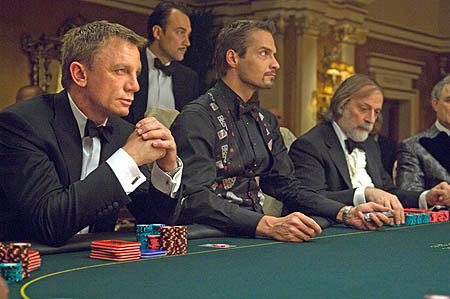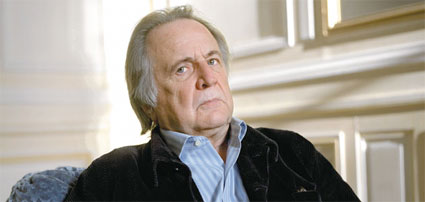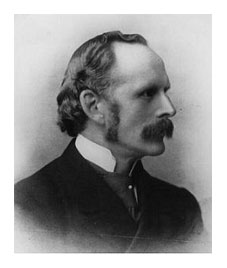Jun
23
2010

There is a thread that runs right through the Bible concerning men and beasts. When men fail to be wise, obedient stewards—as Adam did—they image the beast. Instead of shepherding, they tear and devour. God actually allowed Nebuchadnezzar to become like a beast so that He might resurrect him as a godly steward.
When you hear the word “economics,” if you don’t think of “stewardship,” your definition of economics is not the biblical one. The modern definition is much less about wise stewardship than it is about opportunistic tearing and devouring. What can I get away with? Hath God said…?
Continue reading
Comments Off | tags: Worship as commerce | posted in Christian Life, Ethics, Quotes
May
22
2010

‘OPEN THEISTS’ TEACH THAT GOD CANNOT KNOW THE FUTURE. He gave human beings a true free will, so if God knows the future, human beings cannot truly be free. The Old Creation (the Old Testament) and the New Creation (a new humanity beginning with Christ) were thus both gigantic g ambles on God’s part. Does God g amble? After all, He commanded His priests to “throw the d ice.”
3 comments | tags: Baptism, Covenant Theology, Faith, High Priest, Open Theism, Tabernacle, Urim and Thummim | posted in Against Hyperpreterism, Biblical Theology, Ethics, The Last Days, Totus Christus
Feb
8
2010

Tim Nichols recently posted concerning whether Christians should participate in martial arts that have a pagan background.[1] I suggested that postmillennialism naturally sees what can be salvaged from pagan cultures and “redeemed”, rather than writing it all off as corrupt, as many Christians do. His response was worth repeating:
Continue reading
Comments Off | tags: Biblical worldview, Postmillennialism, Tim Nichols | posted in Apologetics, Ethics, Quotes
Feb
6
2010
or What’s Wrong with this Picture?

“When I began to edit the film, something happened. I found I was being educated. And not just with arguments. I was watching a Christian life. I was seeing a Christian man.” —Darren Doane
Just watched The History Boys, a film based on an entertaining but self-indulgent West End play by Alan Bennett. Despite the fact that under Course Language and Sexual References it should also have a “gay theme” warning (but I guess that’s not politically correct), the film is hysterical is places and unwittingly highlights a fatal flaw in our culture.
Continue reading
2 comments | tags: Christopher Hitchens, Culture, Darren Doane, Doug Wilson, Film, Masculinity, Parenting | posted in Christian Life, Ethics, Quotes
Feb
3
2010

No More Heredity
Another quote from Regis Debray’s God: An Itinerary, and then some comments.
He’s a staunch atheist so I really shouldn’t be enjoying this book. What a mind. He’s like James Jordan’s evil twin. He has some wonderful observations despite his lack of the unifying paradigm of faith to understand their true meanings. He alternately makes me want to scream and sing.
Debray mistakenly interprets the adjustments made by God in the economy of His people throughout history as the inventions of men, yet without the constraints of errant tradition, he often hits the nail on the head. All he says should be taken with a grain of salt, but he is consistently thought-provoking.
Continue reading
5 comments | tags: Atheism, Baptism, Church History, Federal Vision, Regis Debray | posted in Biblical Theology, Ethics, Quotes, Totus Christus
Jan
27
2010

A gripping sermon from Doug Jones in 2007. He contrasts unitarian and trinitarian worldviews.
Continue reading
Comments Off | tags: Doug Jones, Trinity | posted in Biblical Theology, Christian Life, Ethics
Jan
4
2010
or Collision II

In the movie Collision, Christopher Hitchens relies a lot on the idea of a moral consensus, the idea that humanity has an innate sense of what’s right and what’s wrong and that we all agree on the basics. Is there any merit in this assumption? Or is Hitchens assuming that the benefits of Christianity are the result of human reason? Peter Leithart argues that Calvin, as an heir of 1200 years of Christendom, made exactly this mistake.
(I present below just the head and tail of Dr Leithart’s argument. I highly recommend getting a hold of the essay and reading his full argument and evidences.)
Excerpts from Did Plato Read Moses?
Peter Leithart on Middle Grace and Moral Consensus
The Bible presents a bleak view of the moral potential of the natural man. In this respect it seems to fly in the face of the facts. What are we to make of the empirical phenomenon of the “good pagan”?
Continue reading
10 comments | tags: C. S. Lewis, Calvin, Christopher Hitchens, Church History, Peter Leithart | posted in Apologetics, Biblical Theology, Ethics
Dec
18
2009
or The Crash of AD70

Now a river went out of Eden to water the garden, and from there it parted and became four riverheads. The name of the first is Pishon; it is the one which skirts the whole land of Havilah, where there is gold. And the gold of that land is good. Bdellium and the onyx stone are there. The name of the second river is Gihon; it is the one which goes around the whole land of Cush. The name of the third river is Hiddekel; it is the one which goes toward the east of Assyria. The fourth river is the Euphrates. (Genesis 2:10-14)
After the Herod and Shylock post, I had one complaint that the Worship as Commerce tag didn’t really do what it said on the tin, so I hope to capture it (briefly?) here. Now, where to start? As James Jordan explains, the idea begins in Eden.
Continue reading
1 comment | tags: AD70, Amalek, Gehenna, Genesis, Gnosticism, Herod, High Priest, Isaiah, Manna, Moses, Numbers 5, Revelation, Solomon, Temple, Worship as commerce | posted in Against Hyperpreterism, Biblical Theology, Christian Life, Creation, Ethics, Quotes, The Last Days, Totus Christus
Nov
5
2009
Some excellent thoughts on unity from Tim Nichols:
Endeavouring to Guard the Unity of the Spirit
It is a cherished dictum that as Christians, we are a community of faith and therefore our unity is based on doctrine. In fact, this very thing came up in a recent comment thread on another post here. I want to make it clear I’m not taking a shot at any of you who’ve discussed that matter here. I do, however, want to address the way this concept is often applied in the Christian world.
Continue reading
1 comment | tags: Tim Nichols | posted in Christian Life, Ethics, Quotes
Oct
27
2009
“What makes a man a good cricketer? Practice. What makes a man a good man? Practice. Nothing else.”
Henry Drummond on the fruits of the Spirit:
 .
.
Now the business of our lives is to have these nine things fitted into our characters. That is the supreme work to which we need to address ourselves in this world, to learn Love. Is life not full of opportunities for learning Love? Every man and woman every day has a thousand of them. The world is not a play-ground; it is a schoolroom. Continue reading
Comments Off | tags: Henry Drummond, Love, Temptation | posted in Christian Life, Ethics, Quotes


































